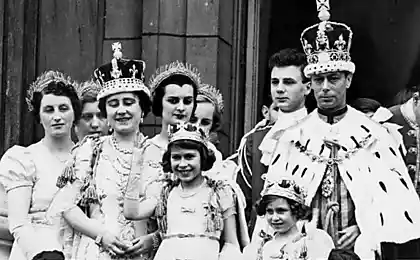702
The law of life in the family of the alcoholic: if you don't take care of myself, no one about you will not care
Alcoholism affects the entire familyEstimated that each alcoholic affects the lives of at least four people.
Whatever the personal characteristics of alcoholics, their family members usually react to the heavy burdens of life with them well enough in a predictable manner. These reactions may be the same irresistible obsession as the behavior of the alcoholic, and as such, they threaten to plunge the family members in the real disease even more serious than the disease of the alcoholic.
Seventy two million eight hundred fifty nine thousand one hundred forty one
The reluctance of families to accept the reality
The family of the alcoholic, on average, only seven years after the appearance of obvious evidence of his pathological addiction recognizes that in the house lives an alcoholic. Even two years they are pulling in order to seek help.
In this persistent denial by family members and close friends, no matter how senseless it may seem, has its own logic. In the early stages of alcoholism are rarely present obvious signs, allowing to distinguish an alcoholic from a hard or even moderate drinker.
When all there are the first alarming symptoms, increased alcohol consumption, frequent intoxication, changes in personality, something closest to the alcoholic people are blinded by the claims of personal loyalty and fear of stigma of alcoholism. For each of us it is much easier to brush aside the question about someone's disturbing relationship to alcohol, thinking it was perfectly normal, than allow for the possibility that the man we know and love, formed a socially unacceptable addiction.
A distorted perception of reality (alcoholic) family contributes to several important factors:
1. Insulation. Rare family in which there has been talk of the presence of the alcoholic. Shame and embarrassment erected a wall of silence around each member of the family and gradually cut off all ties between them, except the most superficial.
Family members exacerbate their isolation is the fact that gradually moving away from friends and all sorts of outside interests. Bitter experience, they learn what should not be invited to his home friends, and for fear of contingencies generated by the alcoholic, it is difficult to engage in serious relationships with other people. If the children of alcoholics have friends, it is often also the children of alcoholics.
Family the world the alcoholic gradually narrows to such an extent that there are very few, except the alcoholic and those who revolve directly around him. This creates more favorable conditions for drinking and makes the family highly dependent on the alcoholic emotionally.
2. The emotional disorder.Sooner or later family members of alcoholics fall into the same emotional disorder that he suffers. They feel more guilty that the alcoholic drinks "for them" and that they hate those people who, in their opinion, ought to love and resent them. They are uncomfortable and ashamed of the alcoholic. Annoying their own helplessness.
Fear of the unpredictable behavior of drunks mixed with vague anxiety for the future, and the increasing isolation generates feelings of loneliness and depression.
Family members of alcoholics rarely share their feelings with others. Instead, they repress their feelings, which form the real abscess of despair and self-loathing.Devoid of a real understanding about itself, the family of the alcoholic becomes helpless before his manipulation.
Forty one million six hundred seventy seven thousand five hundred six
3. The Central position of the alcoholic.In a healthy family no one is constantly is not the center. Attention is paid to the achievements and needs of each family member, and there is a healthy interchange between husband and wife, parents and children.
An alcoholic usually becomes the family main object of attention. Since his behavior is unpredictable, and it is the "unknown factor", all thoughts automatically focus on it. In which it is today mood? If he is sober, what can we do to make him happy? If drunk, how to appease? How do we get him across the road? Family is always on the alert, trying to predict the unpredictable and hoping to keep a bad situation to not become worse.
Because the family is in emotional disorder, and her isolation is amplified and since the alcoholic is in the center of application of its forces, family members often take the point of view of an alcoholic reality. It is not that he drinks too much, and that his cantankerous wife, or the children are noisy, or parent is unfair, or the owner is a real taskmaster. Family members unwittingly absorb a false explanations, speculations, and projections of an alcoholic and, like him, unable to deny his addiction, paying extremely high price for his drinking.
The role of survival
Every member of the family of the alcoholic, or otherwise changes its behavior for the sake of its convenience and saving him from the consequences of drinking.
The main accompliceThe main accomplice is normally a wife or husband, but it may be a child or someone else from the parents, close friend, employer or even the priest.
In the early years of addiction, the driving motives of the main accomplice is the love for the alcoholic and the care of it. Often the wife felt that the husband really cannot control alcohol consumption, tries to eliminate the very temptation. She searches the house for hidden bottles, pours the liquor into the sewer, grows strong and is trying to arrange the social life of the drinking husband. She is angry at friends who drink and "tempt" the alcoholic, and accepting invitations to drinking parties.
Despite all these efforts, the alcoholic continues to drink. To survive and reduce stress, which, in their view, provoke addiction husband, the main accomplice assumes one after another all the duties which adds itself to an alcoholic.
The good intentions of the home of an accomplice create the alcoholic more comfortable to drink. He fed, well-groomed. The alcoholic neglects the responsibilities of an adult, and in return receives all of life's comforts.
While an alcoholic is protected from the effects of addiction, the main accomplice harder and harder and feels his inadequacy. She can't control drinking husband and her own emotions. She becomes depressed, gloomy, morbidly sensitive and irritable. She grumbles and scandals, while actually want to be loving and kind. Own hard portable behavior increases her sense of guilt and shame, and her self-esteem drops to zero.
Sooner or later, the accomplice comes to the collapse of their hopes. Tears, pleas, cries, pleas and prayers — nothing works. It is no longer possible to believe any vows. In the absence of assistance from outside the main accomplice and other family members must now either break up with the alcoholic, or to establish dubious life with him.
Fifty four million seven hundred thirty four thousand three hundred ten
Family roles of children of alcoholics: a) turning in an unusually responsible person;
b) transformation into a "Comforter";
C) a permanent fixture or disclaimer;
g) causing the hassle.
Adopt a child one role or combination of roles, self-protective behavior compensates for his inadequate parents, covering the gaps in their emotional development and brings a semblance of stability and order in a chaotic life. As children learn to trust the reliability of his strategy of mastering the situation, they carry them into adulthood.
Family heroAlmost every ruined or unhealthy family, the child is often a senior, who takes on the responsibilities of the absent or overburdened parent. This responsible, adult replaces the child prepares food, takes care of the finances, ensure safe existence of younger siblings and trying to maintain as possible, the normal functioning of the family. Sometimes this child plays the role of counselor, resolving disputes between parents and trying to establish broken relationships.
In school, the family hero is usually the over-achievers. It can receive higher grades, perform any duties in the classroom or be a trained athlete. He works a lot on reaching goals and gaining the approval of teachers. Often he is a gifted organizer or he enjoys extraordinary prestige among his classmates.
The super-successful children become adults, the gaps in their emotional development, they typically cover intensive work and self-discipline.
Although outwardly these working men and women seem to be skilled and self-confident, internally they suffer from low self-esteem and insecurity.
«Scapegoat»In most dysfunctional families have at least one child, whose name is trouble. For this child rules exist only to be broken. He is so constant to cause trouble, which eventually becomes the family scapegoat, distracting attention from the alcoholic.
Naughty child discovered an important principle of child development: is negative attention better than no attention at all. His self-esteem even lower than his self-esteem positively oriented brothers and sisters. Their fragile sense of self "I", he founded on the knowledge that he is "bad", and he tends to be friends, like him, have low self esteem.
Because drugs and alcohol are a common centre of teenage rebellion, "scapegoat" often at an early age experimenting with drugs or abusing them. Genetic predisposition can increase the development of the addiction before the end of adolescence.
In adult life, the legacy of the past manifests itself in the form of resistance management, defiant behavior, and at times uncontrollable temper and fury. Often the "scapegoats" are willing to insult, to offend other people. They often drop out of school early to marry (marry) or give birth to an illegitimate child, shy away from training and get into debt that you cannot pay. Despite his desire to be different, they become very similar to their parents, whom they hate.
«Lost child» "The lost children" suffer from a constant feeling of inadequacy in comparison with others, of being lost and alone in a world that they don't understand and , indeed, even afraid. They do not even try to act independently, instead choosing to "go with the flow". Their low self-esteem, their attitude is visible and external: they are often shy and withdrawn. They prefer to be alone, learning that dreams bring safer and more satisfying than an unpredictable relationships with people.
Becoming an adult, "lost child" continues person feel powerless, without options or alternatives. Usually it tends to be the same emotionally isolated people like himself, or marries a partner, recreating the chaos of his childhood.
Emotional isolation and apathy "lost child" often mistaken for serenity. Adaptable child, unfortunately, accepts as fact that he ever and nothing can change that.
"The family clown" or "family mascot» These are unusually susceptible children have the ability, even the most painful moments to draw in a joke and get used with the help of skillfully used humor to neutralize irritation and anger.
Growing up, family jokes often turn into unable to stop the talkers and extremely excited people. Even in the painful moments, they cover your deepest feelings with a joke. Only the most persistent and perceptive of their friends manage to break through the veil of humor to behind the wounds.
They can be very talented but do not know how to enjoy his success even with the others.
The definition of codependency
The word "codependency" consists of two parts: the dependency is the loss of freedom, slavery; which means "joint".
Codependency is the nature of the disease. This is a specific condition characterized by a strong preoccupation and concern, and extreme dependency (emotional, social and sometimes physical) from a person or object.
For it is characteristic of codependency:
Codependency is the most common disease. It leads to disturbances on all levels: physical, emotional, behavioral, social and spiritual.
Codependency underlies all addictions: chemical dependency, addiction to money, food, work, sex, etc.
Six million seven hundred fifteen thousand nine hundred fifty nine
Adult children of alcoholicsThere is a myth (false belief) that only direct contact with the active alcoholic or addict can have some influence. However, neither divorce nor separation, nor even the death of the chemically dependent person does not stop the development of codependency in the family. We should also mention another group of victims of alcoholism (and drug addiction) is adult children of alcoholics. Many of them in adult life have problems that are consequences of the past.
Typical traits of adult children of alcoholics:
Impossible, growing up in an environment of emotional neglect or, at best, inconsistent education, to gain sufficient confidence in their abilities.
Adult children of alcoholics — great masters in building their external image, they aim to convince others that they have "everything in order" at the same time hoping to convince himself. Positive external changes do not lead, however, to overcome feelings of inferiority. There is a "imposter syndrome", the constant fear of discovery, establishing who he is.
Chemically dependent families carrying the idea that if you wait long enough, everything will fall into place without the adoption of certain measures. Continuous life in the atmosphere of stress, when the overriding feeling of helplessness leads to the idea that it is not necessary to change anything, because nothing good will come of it.
Family members are rarely able to prioritize.
Even when the kids think something can be done to make a change, and Express their discontent parents, the model of passivity remains etched in their consciousness, and will be seen in solving problems in their their adult lives.
Adult children of alcoholics consider themselves victims of circumstance, not able to control the events of life.
The solution to the problems of the relationship seen adult children of alcoholics in the desire of another person to change. They can't see that their own reaction to the problem can only enhance the stressful situation. They sure can't control your thoughts or feelings and therefore have to react automatically, irritated, accusing and threatening whenever other "provoke" them.
Each morning, adult children of alcoholics appreciate the coming day's actions, thoughts, feelings, other people and all that, "what's going on". They are often called "sverdiolas" for the constant manifestation of exceptional interest to all, for the ability to detect the slightest external indication, for example, facial expressions, psychological atmosphere of the room, etc.
Such ability is developed due to the need in the alcoholic family, where the moral climate depends entirely on what the alcoholic is doing or what he was doing last night.
Focus on the external environment in chemically dependent families leads to the fact that adult children of alcoholics live reactions to the surrounding world, and their feelings and decisions often depend on it. They are sincerely wrong in believing that when "the situation" to change, they all will be well.
Learn to distinguish between feelings and Express them appropriately can only be the result of training or modeling in the family. When the opportunity in the family of the missing or, even worse, the situation aggressively, children learn certain behaviors.
Adult children of alcoholics can think about feelings and can learn to develop them by simulating the reactions and behavior of other people. They know exactly what they should feel, and even how to react at the same, but in reality, do not feel in the full sense of the word. Over time, they become lonely, lose contact with their inner world. Adult children of alcoholics can well understand the suffering of other people and even help them, but find themselves unable to cope with their experiences.
Some adult children of alcoholics seem to give myself permission to Express certain feelings, e.g., anger, vulnerability, sadness, etc.
Women tend to avoid anger, they allow themselves to weep, but never expressing anger.
The inability to identify and Express feelings leads to fruitless attempts in the intimate sphere. If you know how I feel you know me. If I don't know how I feel, and even if I know, but I can tell you we will never be able to communicate an intimate way. Adult children of alcoholics feel good only with those who has the same or similar level of ability to feel.
In chemically dependent families, there is a law of life: if you don't take care of myself, no one about you will not care. Children, it is clear that parents do not remain to them, whether spiritual or physical strength.
As adults, children of alcoholics can not hope that others want to help them, and become unable by themselves to ask for help even in such simple cases, how to drive to work or to get a Cup of coffee. At the same time they are mandatory in helping others, even when there is no need or people don't deserve this.
This pattern of behavior when avoided any talk of assistance in connection with personal challenges, leads to aggravation of problems and the need for further denial. No matter large or small problems, the reaction of the children of alcoholics are the same.
This feature concerns the ability to make decisions, to consider alternatives and to act accordingly in difficult situations. The most typical response to everyday problems in families of alcoholics: "this is not happening". This trend leads to the fact that the problem is delayed until, until it becomes more acute, and it can no longer be avoided.
When the crisis is inevitable, the decision-making process and follow-up mainly comes down to finding the perpetrator, then there is either excessive activity or almost complete passivity. Extreme thinking leads to the fact that family members or do nothing at all, or you accept absurd solutions.
Also interesting: the Fact that alcohol in small doses may be useful, is a lie.
Alcohol and the human brain
This is not a complete list of the characteristic features allows you to present the difficulties faced by adult children of alcoholics. Impact on families that create adult children of alcoholics.published
P. S. And remember, only by changing their consumption — together we change the world! ©
Source: aadubna.narod.ru/mat/soz.htm
Whatever the personal characteristics of alcoholics, their family members usually react to the heavy burdens of life with them well enough in a predictable manner. These reactions may be the same irresistible obsession as the behavior of the alcoholic, and as such, they threaten to plunge the family members in the real disease even more serious than the disease of the alcoholic.
Seventy two million eight hundred fifty nine thousand one hundred forty one
The reluctance of families to accept the reality
The family of the alcoholic, on average, only seven years after the appearance of obvious evidence of his pathological addiction recognizes that in the house lives an alcoholic. Even two years they are pulling in order to seek help.
In this persistent denial by family members and close friends, no matter how senseless it may seem, has its own logic. In the early stages of alcoholism are rarely present obvious signs, allowing to distinguish an alcoholic from a hard or even moderate drinker.
When all there are the first alarming symptoms, increased alcohol consumption, frequent intoxication, changes in personality, something closest to the alcoholic people are blinded by the claims of personal loyalty and fear of stigma of alcoholism. For each of us it is much easier to brush aside the question about someone's disturbing relationship to alcohol, thinking it was perfectly normal, than allow for the possibility that the man we know and love, formed a socially unacceptable addiction.
A distorted perception of reality (alcoholic) family contributes to several important factors:
1. Insulation. Rare family in which there has been talk of the presence of the alcoholic. Shame and embarrassment erected a wall of silence around each member of the family and gradually cut off all ties between them, except the most superficial.
Family members exacerbate their isolation is the fact that gradually moving away from friends and all sorts of outside interests. Bitter experience, they learn what should not be invited to his home friends, and for fear of contingencies generated by the alcoholic, it is difficult to engage in serious relationships with other people. If the children of alcoholics have friends, it is often also the children of alcoholics.
Family the world the alcoholic gradually narrows to such an extent that there are very few, except the alcoholic and those who revolve directly around him. This creates more favorable conditions for drinking and makes the family highly dependent on the alcoholic emotionally.
2. The emotional disorder.Sooner or later family members of alcoholics fall into the same emotional disorder that he suffers. They feel more guilty that the alcoholic drinks "for them" and that they hate those people who, in their opinion, ought to love and resent them. They are uncomfortable and ashamed of the alcoholic. Annoying their own helplessness.
Fear of the unpredictable behavior of drunks mixed with vague anxiety for the future, and the increasing isolation generates feelings of loneliness and depression.
Family members of alcoholics rarely share their feelings with others. Instead, they repress their feelings, which form the real abscess of despair and self-loathing.Devoid of a real understanding about itself, the family of the alcoholic becomes helpless before his manipulation.
Forty one million six hundred seventy seven thousand five hundred six
3. The Central position of the alcoholic.In a healthy family no one is constantly is not the center. Attention is paid to the achievements and needs of each family member, and there is a healthy interchange between husband and wife, parents and children.
An alcoholic usually becomes the family main object of attention. Since his behavior is unpredictable, and it is the "unknown factor", all thoughts automatically focus on it. In which it is today mood? If he is sober, what can we do to make him happy? If drunk, how to appease? How do we get him across the road? Family is always on the alert, trying to predict the unpredictable and hoping to keep a bad situation to not become worse.
Because the family is in emotional disorder, and her isolation is amplified and since the alcoholic is in the center of application of its forces, family members often take the point of view of an alcoholic reality. It is not that he drinks too much, and that his cantankerous wife, or the children are noisy, or parent is unfair, or the owner is a real taskmaster. Family members unwittingly absorb a false explanations, speculations, and projections of an alcoholic and, like him, unable to deny his addiction, paying extremely high price for his drinking.
The role of survival
Every member of the family of the alcoholic, or otherwise changes its behavior for the sake of its convenience and saving him from the consequences of drinking.
The main accompliceThe main accomplice is normally a wife or husband, but it may be a child or someone else from the parents, close friend, employer or even the priest.
In the early years of addiction, the driving motives of the main accomplice is the love for the alcoholic and the care of it. Often the wife felt that the husband really cannot control alcohol consumption, tries to eliminate the very temptation. She searches the house for hidden bottles, pours the liquor into the sewer, grows strong and is trying to arrange the social life of the drinking husband. She is angry at friends who drink and "tempt" the alcoholic, and accepting invitations to drinking parties.
Despite all these efforts, the alcoholic continues to drink. To survive and reduce stress, which, in their view, provoke addiction husband, the main accomplice assumes one after another all the duties which adds itself to an alcoholic.
The good intentions of the home of an accomplice create the alcoholic more comfortable to drink. He fed, well-groomed. The alcoholic neglects the responsibilities of an adult, and in return receives all of life's comforts.
While an alcoholic is protected from the effects of addiction, the main accomplice harder and harder and feels his inadequacy. She can't control drinking husband and her own emotions. She becomes depressed, gloomy, morbidly sensitive and irritable. She grumbles and scandals, while actually want to be loving and kind. Own hard portable behavior increases her sense of guilt and shame, and her self-esteem drops to zero.
Sooner or later, the accomplice comes to the collapse of their hopes. Tears, pleas, cries, pleas and prayers — nothing works. It is no longer possible to believe any vows. In the absence of assistance from outside the main accomplice and other family members must now either break up with the alcoholic, or to establish dubious life with him.
Fifty four million seven hundred thirty four thousand three hundred ten
Family roles of children of alcoholics: a) turning in an unusually responsible person;
b) transformation into a "Comforter";
C) a permanent fixture or disclaimer;
g) causing the hassle.
Adopt a child one role or combination of roles, self-protective behavior compensates for his inadequate parents, covering the gaps in their emotional development and brings a semblance of stability and order in a chaotic life. As children learn to trust the reliability of his strategy of mastering the situation, they carry them into adulthood.
Family heroAlmost every ruined or unhealthy family, the child is often a senior, who takes on the responsibilities of the absent or overburdened parent. This responsible, adult replaces the child prepares food, takes care of the finances, ensure safe existence of younger siblings and trying to maintain as possible, the normal functioning of the family. Sometimes this child plays the role of counselor, resolving disputes between parents and trying to establish broken relationships.
In school, the family hero is usually the over-achievers. It can receive higher grades, perform any duties in the classroom or be a trained athlete. He works a lot on reaching goals and gaining the approval of teachers. Often he is a gifted organizer or he enjoys extraordinary prestige among his classmates.
The super-successful children become adults, the gaps in their emotional development, they typically cover intensive work and self-discipline.
Although outwardly these working men and women seem to be skilled and self-confident, internally they suffer from low self-esteem and insecurity.
«Scapegoat»In most dysfunctional families have at least one child, whose name is trouble. For this child rules exist only to be broken. He is so constant to cause trouble, which eventually becomes the family scapegoat, distracting attention from the alcoholic.
Naughty child discovered an important principle of child development: is negative attention better than no attention at all. His self-esteem even lower than his self-esteem positively oriented brothers and sisters. Their fragile sense of self "I", he founded on the knowledge that he is "bad", and he tends to be friends, like him, have low self esteem.
Because drugs and alcohol are a common centre of teenage rebellion, "scapegoat" often at an early age experimenting with drugs or abusing them. Genetic predisposition can increase the development of the addiction before the end of adolescence.
In adult life, the legacy of the past manifests itself in the form of resistance management, defiant behavior, and at times uncontrollable temper and fury. Often the "scapegoats" are willing to insult, to offend other people. They often drop out of school early to marry (marry) or give birth to an illegitimate child, shy away from training and get into debt that you cannot pay. Despite his desire to be different, they become very similar to their parents, whom they hate.
«Lost child» "The lost children" suffer from a constant feeling of inadequacy in comparison with others, of being lost and alone in a world that they don't understand and , indeed, even afraid. They do not even try to act independently, instead choosing to "go with the flow". Their low self-esteem, their attitude is visible and external: they are often shy and withdrawn. They prefer to be alone, learning that dreams bring safer and more satisfying than an unpredictable relationships with people.
Becoming an adult, "lost child" continues person feel powerless, without options or alternatives. Usually it tends to be the same emotionally isolated people like himself, or marries a partner, recreating the chaos of his childhood.
Emotional isolation and apathy "lost child" often mistaken for serenity. Adaptable child, unfortunately, accepts as fact that he ever and nothing can change that.
"The family clown" or "family mascot» These are unusually susceptible children have the ability, even the most painful moments to draw in a joke and get used with the help of skillfully used humor to neutralize irritation and anger.
Growing up, family jokes often turn into unable to stop the talkers and extremely excited people. Even in the painful moments, they cover your deepest feelings with a joke. Only the most persistent and perceptive of their friends manage to break through the veil of humor to behind the wounds.
They can be very talented but do not know how to enjoy his success even with the others.
The definition of codependency
The word "codependency" consists of two parts: the dependency is the loss of freedom, slavery; which means "joint".
Codependency is the nature of the disease. This is a specific condition characterized by a strong preoccupation and concern, and extreme dependency (emotional, social and sometimes physical) from a person or object.
For it is characteristic of codependency:
- delusion, denial, deception;
- excessive concern about someone or something when you neglect yourself until the complete loss of own "I»;
- compulsive actions (unconscious irrational behavior, which people may later regret, but still continue to act the same as if the invisible movable inner strength);
- the compulsive need to perform certain actions in relation to others (to take care of, to suppress, angry, etc.);
- the habit of feeling the same feelings (self-pity, anger, irritation, etc.);
- "frozen" feelings and associated problems in communication, intimacy, etc.;
- the inability to distinguish between responsibility for myself and for other (adult is responsible for themselves to others, the codependent is responsible for other to others and to ourselves);
- the loss of boundaries; affected people allow themselves to intrude into someone else's life as well as others allows you to invade her, to decide for themselves "what's good for him that bad»;
- low self-esteem, bordering on self-loathing;
- health disorders caused by constant stress.
Codependency is the most common disease. It leads to disturbances on all levels: physical, emotional, behavioral, social and spiritual.
Codependency underlies all addictions: chemical dependency, addiction to money, food, work, sex, etc.
Six million seven hundred fifteen thousand nine hundred fifty nine
Adult children of alcoholicsThere is a myth (false belief) that only direct contact with the active alcoholic or addict can have some influence. However, neither divorce nor separation, nor even the death of the chemically dependent person does not stop the development of codependency in the family. We should also mention another group of victims of alcoholism (and drug addiction) is adult children of alcoholics. Many of them in adult life have problems that are consequences of the past.
Typical traits of adult children of alcoholics:
- Low self esteem.
Impossible, growing up in an environment of emotional neglect or, at best, inconsistent education, to gain sufficient confidence in their abilities.
Adult children of alcoholics — great masters in building their external image, they aim to convince others that they have "everything in order" at the same time hoping to convince himself. Positive external changes do not lead, however, to overcome feelings of inferiority. There is a "imposter syndrome", the constant fear of discovery, establishing who he is.
- Focusing on the external environment
Chemically dependent families carrying the idea that if you wait long enough, everything will fall into place without the adoption of certain measures. Continuous life in the atmosphere of stress, when the overriding feeling of helplessness leads to the idea that it is not necessary to change anything, because nothing good will come of it.
Family members are rarely able to prioritize.
Even when the kids think something can be done to make a change, and Express their discontent parents, the model of passivity remains etched in their consciousness, and will be seen in solving problems in their their adult lives.
Adult children of alcoholics consider themselves victims of circumstance, not able to control the events of life.
The solution to the problems of the relationship seen adult children of alcoholics in the desire of another person to change. They can't see that their own reaction to the problem can only enhance the stressful situation. They sure can't control your thoughts or feelings and therefore have to react automatically, irritated, accusing and threatening whenever other "provoke" them.
Each morning, adult children of alcoholics appreciate the coming day's actions, thoughts, feelings, other people and all that, "what's going on". They are often called "sverdiolas" for the constant manifestation of exceptional interest to all, for the ability to detect the slightest external indication, for example, facial expressions, psychological atmosphere of the room, etc.
Such ability is developed due to the need in the alcoholic family, where the moral climate depends entirely on what the alcoholic is doing or what he was doing last night.
Focus on the external environment in chemically dependent families leads to the fact that adult children of alcoholics live reactions to the surrounding world, and their feelings and decisions often depend on it. They are sincerely wrong in believing that when "the situation" to change, they all will be well.
- The inability to identify or Express feelings
Learn to distinguish between feelings and Express them appropriately can only be the result of training or modeling in the family. When the opportunity in the family of the missing or, even worse, the situation aggressively, children learn certain behaviors.
Adult children of alcoholics can think about feelings and can learn to develop them by simulating the reactions and behavior of other people. They know exactly what they should feel, and even how to react at the same, but in reality, do not feel in the full sense of the word. Over time, they become lonely, lose contact with their inner world. Adult children of alcoholics can well understand the suffering of other people and even help them, but find themselves unable to cope with their experiences.
Some adult children of alcoholics seem to give myself permission to Express certain feelings, e.g., anger, vulnerability, sadness, etc.
Women tend to avoid anger, they allow themselves to weep, but never expressing anger.
The inability to identify and Express feelings leads to fruitless attempts in the intimate sphere. If you know how I feel you know me. If I don't know how I feel, and even if I know, but I can tell you we will never be able to communicate an intimate way. Adult children of alcoholics feel good only with those who has the same or similar level of ability to feel.
- Inability to ask for help
In chemically dependent families, there is a law of life: if you don't take care of myself, no one about you will not care. Children, it is clear that parents do not remain to them, whether spiritual or physical strength.
As adults, children of alcoholics can not hope that others want to help them, and become unable by themselves to ask for help even in such simple cases, how to drive to work or to get a Cup of coffee. At the same time they are mandatory in helping others, even when there is no need or people don't deserve this.
This pattern of behavior when avoided any talk of assistance in connection with personal challenges, leads to aggravation of problems and the need for further denial. No matter large or small problems, the reaction of the children of alcoholics are the same.
- Extreme thinking
This feature concerns the ability to make decisions, to consider alternatives and to act accordingly in difficult situations. The most typical response to everyday problems in families of alcoholics: "this is not happening". This trend leads to the fact that the problem is delayed until, until it becomes more acute, and it can no longer be avoided.
When the crisis is inevitable, the decision-making process and follow-up mainly comes down to finding the perpetrator, then there is either excessive activity or almost complete passivity. Extreme thinking leads to the fact that family members or do nothing at all, or you accept absurd solutions.
Also interesting: the Fact that alcohol in small doses may be useful, is a lie.
Alcohol and the human brain
This is not a complete list of the characteristic features allows you to present the difficulties faced by adult children of alcoholics. Impact on families that create adult children of alcoholics.published
P. S. And remember, only by changing their consumption — together we change the world! ©
Source: aadubna.narod.ru/mat/soz.htm
Breathtaking! Most stylish wedding dresses in 2017.
When I stopped to listen to unsolicited advice...























